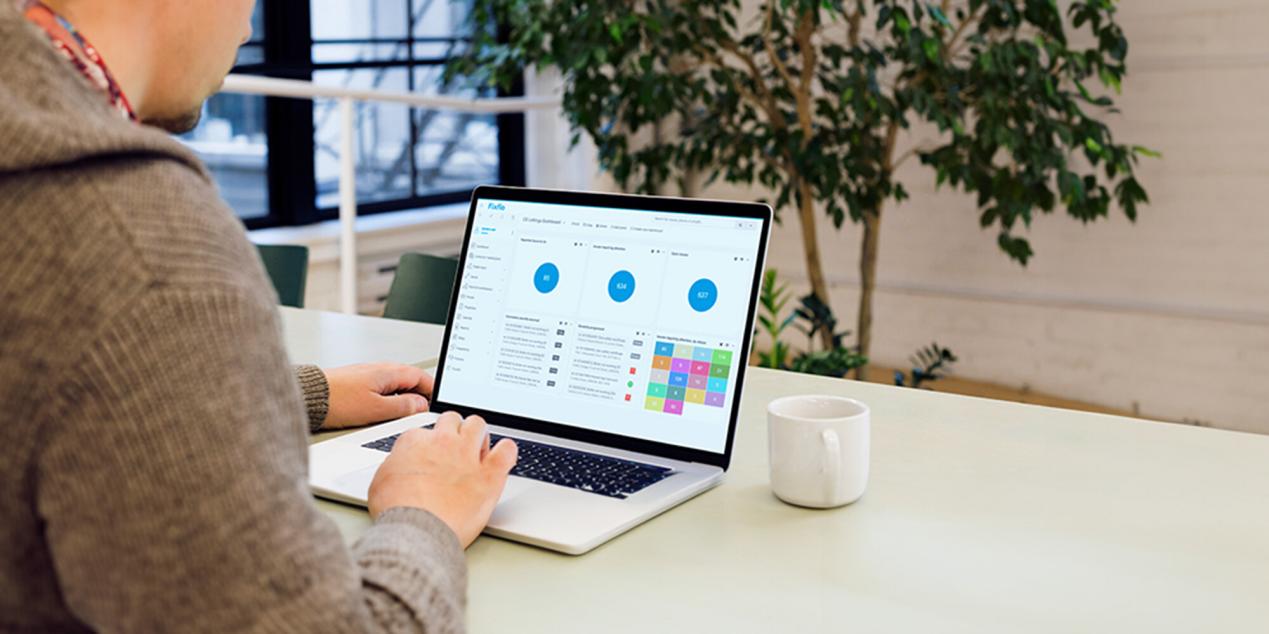In today's fast-paced business landscape, the use of management software is increasingly crucial for operational success. Property Management Software (PMS) stands out as a comprehensive solution that enables property managers to effectively streamline daily operations encompassing tenant communication, financial tracking, and maintenance management.

As demands for efficiency and resource optimization grow, PMS has risen to be a vital component of modern business practices. This article explores the pivotal role of PMS in property management, highlighting its key functionalities and advantages while demonstrating its critical importance for property management firms aiming to thrive in a competitive market.
Understanding Property Management Software (PMS)
Property Management Software (PMS) is a digital tool designed to facilitate numerous aspects of property management, from leasing and collecting rent to maintenance coordination and tenant communication. The principal objective of PMS is to streamline operations, enhance tenant experiences, and boost overall efficiency in managing both residential and commercial properties.
Over the years, PMS has undergone significant evolution, shifting from basic spreadsheets to sophisticated cloud-based systems that integrate advanced automation and data analytics. This transformation reflects a broader change in the property management sector, spurred by technological advancements, including mobile accessibility, integrated payment processing, and real-time reporting dashboards.
For instance, features such as online tenant portals for rent payments and maintenance requests not only simplify routine tasks for managers but also enhance tenant satisfaction, illustrating the crucial role of PMS in contemporary property management practices.
Key Features of PMS
1. Scheduling & Organizing
Property Management Software (PMS) excels in facilitating efficient scheduling and organizing various tasks, providing users with tools that streamline workflows. Its robust scheduling features enable property managers to allocate resources effectively, plan maintenance schedules, and ensure timely communication with tenants. By centralizing organizational tasks into a user-friendly interface, PMS significantly enhances productivity, allowing managers to concentrate on core responsibilities rather than becoming bogged down by administrative tasks. The ability to set reminders and automate notifications enhances operational efficiency, ultimately resulting in improved tenant satisfaction and retention.
2. Monitoring Occupancy
One of the critical functionalities of PMS is its capability to monitor occupancy levels in real-time. This powerful feature equips property managers with insights into unit availability, tenant turnover rates, and lease expirations. By harnessing this data, managers can make informed strategic choices concerning pricing adjustments and marketing strategies. Effectively monitoring occupancy minimizes vacancies and maximizes revenue potential, enabling property managers to respond quickly to ever-changing market demands.
3. Financial Management
Financial management represents another vital component of PMS, enabling property managers to track income and expenses effortlessly. With features such as automated invoicing, billing reminders, and comprehensive financial reporting, PMS simplifies accounting chores for property managers. Accurate financial record-keeping is essential for ensuring compliance and facilitating strategic planning, allowing managers to maximize investment returns while keeping operational costs in check.
Advantages of Implementing PMS
The implementation of Property Management Software (PMS) offers numerous benefits that can substantially enhance operational efficiencies for businesses. Firstly, PMS automates routine tasks, including tenant communications, rent collection, and maintenance requests, thereby allowing property managers to channel their energies into strategic decision-making and relationship-building. This automation increases overall productivity, empowering teams to manage more properties without a corresponding increase in workload.
From a financial viewpoint, PMS diminishes the necessity for extensive manual labor, consequently lessening the chances for human error and reducing operational costs. Businesses can achieve significant savings through streamlined workflows and optimized resource allocation.
Moreover, an efficient PMS improves customer satisfaction by ensuring prompt responses to inquiries and smoother transaction processes. Tenants and clients can enjoy a responsive communication system, which leads to enhanced rental experiences and higher retention rates.
Finally, by centralizing communication among property managers, landlords, and tenants, PMS facilitates collaboration and the sharing of information. Real-time updates and accessible digital platforms promote transparency and trust, fostering stronger relationships across all parties involved. Collectively, the qualitative and quantitative advantages of PMS present compelling reasons for its widespread adoption in the property management industry.
Choosing the Right PMS for Your Business
Selecting the appropriate Property Management Software (PMS) is essential for aligning with your business objectives. Begin by evaluating your specific operational needs, including the type of properties you manage and the scale of your operations. Key features to consider include user-friendly interfaces, automated workflows, strong reporting capabilities, and integration options with existing systems. Also, take scalability into consideration for future growth and ensure user support is available for effective implementation. Making sure that your chosen PMS addresses these critical factors can significantly enhance overall efficiency, streamline operations, and ultimately result in higher tenant satisfaction, making your selection a crucial component of your business strategy.
A Step Towards Optimal Efficiency
In summary, Property Management Software (PMS) is indispensable for enhancing property management processes and driving operational efficiency. By utilizing technology to automate routine tasks, improve communication, and maintain accurate records, property managers can reduce workload and boost tenant satisfaction significantly. As the real estate landscape continues to evolve, adopting PMS solutions becomes not just beneficial, but essential for modern management practices. For businesses looking to optimize operational efficiency, investing in a PMS is a proactive measure that can pave the way for success. Choosing the correct software will facilitate smoother, more productive management, ensuring that you remain competitive in today’s dynamic environment.




